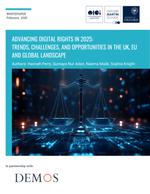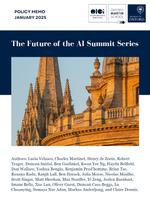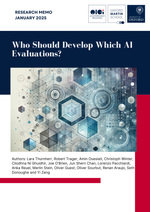Lennart Heim, Tim Fist, Janet Egan, Sihao Huang, Stephen Zekany, Robert Trager, Michael A. Osborne & Noa Zilberman
View Policy PaperAs jurisdictions around the world take their first steps toward regulating the most powerful AI systems, such as the EU AI Act and the US Executive Order 14110, there is a growing need for effective enforcement mechanisms that can verify compliance and respond to violations. We argue that compute providers should have legal obligations and ethical responsibilities associated with AI development and deployment, both to provide secure infrastructure and to serve as intermediaries for AI regulation. Compute providers can play an essential role in a regulatory ecosystem via four key capacities: as securers, safeguarding AI systems and critical infrastructure; as record keepers, enhancing visibility for policymakers; as verifiers of customer activities, ensuring oversight; and as enforcers, taking actions against rule violations. We analyze the technical feasibility of performing these functions in a targeted and privacy-conscious manner and present a range of technical instruments. In particular, we describe how non-confidential information, to which compute providers largely already have access, can provide two key governance-relevant properties of a computational workload: its type—e.g., largescale training or inference—and the amount of compute it has consumed. Using AI Executive Order 14110 as a case study, we outline how the US is beginning to implement record keeping requirements for compute providers. We also explore how verification and enforcement roles could be added to establish a comprehensive AI compute oversight scheme. We argue that internationalization will be key to effective implementation, and highlight the critical challenge of balancing confidentiality and privacy with risk mitigation as the role of compute providers in AI regulation expands.





